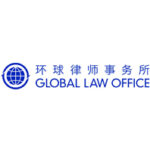-
What is the legal framework (legislation/regulations) governing bribery and corruption in your jurisdiction?
The Indian legislative framework governing bribery and corruption in India is largely codified in The Prevention of Corruption Act, 1988 (‘PCA’).
The PCA is a special legislation enacted to combat bribery and corruption amongst public officials. It criminalizes a range of corrupt activities, including accepting or offering bribes, abusing official position for personal gain, and amassing disproportionate assets. The Act applies to public servants at all levels and following the amendments in 2018, also penalizes private individuals and companies involved in offering any form of illegal gratification (i.e., anything of value other than a legal entitlement) as a reward for doing or forbearing to do an official act.
Further, in the Bharatiya Nyaya Sanhita, 2023 (‘BNS’), which replaces the Indian Penal Code, 1860, corruption is addressed primarily through provisions that align with those under the PCA. Accordingly, some related offences such as cheating, misappropriation, fraud, embezzlement, criminal breach of trust, which overlap with corruption related offences are largely codified under under the BNS.
In addition to the PCA and BNS, the following Acts also govern / stipulate offences of corruption and bribery in India:
1. The Prohibition of Benami Transactions Act, 1988
A ‘benami transaction’ is construed to mean any transaction in which property is transferred to one person for a consideration paid or provided by another. Such benami transactions have often been used to camouflage proceeds of corruption This Act seeks to prohibit benami transactions and provides for imprisonment or fine (or both) for any person found to have entered into such a transaction. The Act also carves out certain exceptions, listing transactions which do not qualify as benami and details the procedure adopted by the Competent Authority (under the Act) for attaching and confiscating benami property which is the subject matter of a benami transaction.
2. The Prevention of Money Laundering Act, 2002
This Act seeks to prevent money laundering, including laundering of property derived from ‘proceeds of crime’. It makes money laundering a criminal offence inter alia leading to confiscation of property acquired from corrupt means. Under this Act, whosever directly or indirectly attempts to indulge or knowingly assists or knowingly is a party or is actually involved in any process or activity connected with the proceeds of crime including its concealment, possession, acquisition or use and projecting or claiming it as untainted property shall be guilty of offence of money – laundering.
The term ‘proceeds of crime’ has been defined to mean any property derived or obtained, directly or indirectly, by any person as a result of certain identified crimes which are specified under Part A of the Schedule to the Act. A person can be charged with the offence of money laundering only if he has been charged with committing a scheduled offence. For purposes of checking or preventing money laundering, the Act imposes obligations on banking companies, financial institutions, intermediaries, etc., to maintain a record of all transactions in such manner as to enable them to (1) reconstruct individual transactions, and (2) ascertain the identity of their clients or beneficial owners.
3. The Central Vigilance Commission Act, 2003
The Central Vigilance Commission constituted under the Central Vigilance Commission Act, is conferred with the powers of exercising general superintendence and control over vigilance matters in administration and probity in public life. The Commission is governed by the Central Vigilance Commission Act, 2003, which provides for the constitution of a Central Vigilance Commission to inquire or initiate inquiries into offences alleged to have been committed under the PCA by certain categories of public servants of the Central Government, corporations established by or under any Central Act; government companies; societies and local authorities owned or controlled by the Central Government and for matters connected therewith or incidental thereto.
4. The Foreign Contribution Regulation Act, 2010
The Foreign Contribution Regulation Act regulates the acceptance and utilisation of foreign contribution or foreign hospitality by certain individuals, associations or companies and prohibits acceptance and utilisation of foreign contribution or foreign hospitality for any activities detrimental to the national interest.
Under the Act, receipt of foreign contributions requires prior registration with or approval of the Ministry of Home Affairs. In the absence of such registration or approval, receipt of foreign contributions may be considered illegal and punishable.
5. The Lokpal and Lokayuktas Act, 2013
The Lokpal and Lokayuktas Act set up nodal ombudsman for the Central Government (Lokpal) and State Governments (Lokayuktas). The Lokpal and Lokayuktas have been accorded relevant powers under the Act to receive complaints and investigate cases of corruption in the public sector involving public servants.
6. The Companies Act, 2013
Under the Companies Act, express provisions for punishment of fraud and giving false statements have been codified. The said provisions have been enacted with a view to prevent corruption and fraud in the corporate sector. The Act also stipulates a duty on statutory auditors of a company to disclose any instances of fraud (which cover instances of corruption and bribery) committed by company employees.
7. The Black Money (Undisclosed Foreign Income and Assets) and Imposition of Tax, 2015
This Act covers within its ambit ‘undisclosed foreign income and assets’ and lays down the procedure for imposition of tax and penalties on the said undisclosed foreign assets and income held outside India. The Act defines ‘undisclosed foreign income and asset’ as the total amount of undisclosed income of an assessee in his name or in respect of which he is a beneficial owner and has no explanation about the source of investment in such asset or the explanation given by him is in the opinion of the Assessing Officer unsatisfactory. An assessee has also been defined under the Act.
-
Which authorities have jurisdiction to investigate and prosecute bribery and corruption in your jurisdiction?
Considering the multiplicity of legislations governing various aspects of crimes and corruption in India, jurisdiction to investigate and prosecute such offences is distributed across several authorities, each empowered under their respective statutes. These authorities, designated under specific laws, play distinct yet sometimes overlapping roles in the enforcement landscape. A summary of the key enforcement agencies and their corresponding legal mandates is provided below:
- Under the BNS, the jurisdictional local police register investigate cases relating to offences such as criminal conspiracy, criminal misappropriation, criminal breach of trust, cheating and fraud. The Court of the jurisdictional Magistrate has power to try the cases registered for the said offences.
- Under the PCA, it is usually the Central Bureau of Investigation (established under the Delhi Special Police Establishment Act) and the Anti-Corruption Bureau (established under notifications issued separately by every State Government) which investigate cases of corruption. The cases are then tried by jurisdictional Special Courts presided over by Special Judges appointed by the Central Government.
- Under the Prohibition of Benami Property Transactions Act, there are four authorities exercising power over cases involving Benami These authorities are (a) Initiating Officer, (b) Approving Authority, (c) Administrator and (d) Adjudicating Authority. Under the Act, the Central Government is also empowered to establish an Appellate Tribunal to hear appeals against the orders passed by the Adjudicating Authority.
- An Adjudicating Authority consisting of a Chairman and two members is appointed by the Central Government under the Prevention of Money Laundering Act. The Adjudicating Authority is empowered to receive complaints and try cases under this Act. Presently the Enforcement Directorate, established under the Ministry of Finance, investigates and prosecutes cases under the Prevention of Money Laundering Act, 2002 as well as the Foreign Exchange Management Act, 1999.
- The Central Vigilance Commission (consisting of a Chairperson and two members) is appointed under the Central Vigilance Commission Act, 2003, for supervising investigation of corruption cases (under PCA) in central government departments, government companies and local government bodies.
- Investigation into cases under the Foreign Contribution (Regulation) Act, 2010 may be conducted by such authority as the Central Government may specific and the authority so appointed has all powers which an officer-in-charge of a police station has while investigating a cognizable offence.
- Under the Lokpal and Lokayuktas Act, 2013, Lokpal comprises of a chairperson and up to eight members. Lokpal has jurisdiction to investigate and prosecute cases of corruption involving the prime minister, ministers, members of Parliament, public servants and other central government employees, other than members of armed forces. Lokayuktas function at the state-level and perform similar duties, like the Lokpal.
- The Serious Fraud Investigation Office (SFIO’) is a multi-disciplinary organization set up under the Ministry of Corporate Affairs, for detecting and prosecuting or recommending for prosecution white-collar crimes/frauds. SFIO is empowered to investigate the affairs of companies based on an order from the Central Government which may be issued under certain circumstances specified under the Companies Act.
-
How is ‘bribery’ or ‘corruption’ (or any equivalent) defined?
Under the PCA, corruption and bribery are primarily defined through the concept of an ‘undue advantage’ offered or accepted by a public servant or any person.
The PCA makes it an offence for a “public servant” from obtaining or accepting or attempting to obtain any “undue advantage” either for himself or for any other person, in lieu of performance of a public duty
The Act also makes it an offence for any person who gives or promises to give any “undue advantage” to another person or persons in order to induce the public servant to improperly perform the public duty or to reward such public servant for the improper performance of the public duty.
The term “undue advantage” is defined as any gratification other than a legal remuneration. In the same vein, the word ‘gratification’ is not restricted to pecuniary gratification or to gratification measurable in monetary terms. The scope of the word “legal remuneration” is not limited to remunerations paid to public servants but includes all remunerations which such public servant is entitled to receive from the organization he serves. Thus, any non-pecuniary considerations such as gifts, favours, promotions, which are not estimable in monetary terms has been brought under the purview of “undue advantage”. Facilitation payment or speed money for expediting an official act, falls within the category of ‘undue advantage’ inasmuch as it would be money paid for reasons other than legal remuneration.
-
Does the law distinguish between bribery of a public official and bribery of private persons? If so, how is 'public official' defined? Is a distinction made between a public official and a foreign public official? Are there different definitions for bribery of a public official and bribery of a private person?
The PCA is primarily designed to prevent and punish corruption involving public servants.
Under Section 7, a public servant commits an offence if they accept or attempt to accept an undue advantage for performing their public duty improperly or dishonestly. The term “public servant” is defined rather expansively under the Act and brings within its purview any and every person who holds an office by virtue of which he is required to perform any public duty. The term “public duty” has been defined as a duty in discharge of which the State, the public or the community at large have an interest.
While the PCA does not primarily cover bribery between private individuals, the 2018 amendment introduced liability for bribe-givers, which includes private persons or commercial organization offering undue advantage to public servants. Corruption within the private sector is not directly criminalized under the PCA but such offences may instead be dealt with under the Companies Act, 2013 (as corporate fraud or misconduct).
India does not currently have a standalone, dedicated law specifically governing the bribery of foreign public officials.
-
Who may be held liable for bribery? Only individuals, or also corporate entities?
Indian law recognizes a company as a separate legal entity, capable of being held liable for both civil and criminal acts. A company can also be held responsible for the actions of its employees, provided those actions are committed within the scope of their employment. Corporate criminal liability in India is primarily governed by the principle of vicarious liability, although certain statutes explicitly impose liability on companies for specific offences. Under this framework, both the company and the individuals in control of its affairs may be held accountable.
The Companies Act, 2013 contains several provisions that impose criminal liability not only on directors but also on “officers in default.” This term is defined broadly to include whole-time directors, key managerial personnel (KMPs), and, in their absence, any other directors designated by the Board. These individuals can be held criminally liable if an offence is committed under their watch.
To prosecute a company for a criminal act, it must be shown that the company, through its employees or officers in default, either (i) Actively participated in the commission of the offence, (ii) Had knowledge of the offence and failed to act, or (iii) Consented to or connived in the commission of the offence.
A company may also be held vicariously liable for acts committed by its employees during the course of their official duties. In such cases, the employee is considered an agent, and the company the principal. This principal-agent relationship forms the basis for corporate criminal liability. However, for vicarious liability to apply, it must be demonstrated that the criminal act resulted in some benefit—direct or indirect—to the company.
In Iridium India Telecom Ltd. v. Motorola Inc., the Supreme Court affirmed that a corporation can be held criminally liable and may be convicted of both statutory and common law offences, including those requiring mens rea (criminal intent). The Court held that criminal liability arises when an offence is committed in connection with the company’s business by a person or group of persons exercising significant control over its affairs. In such cases, the corporation is deemed to “think and act” through them, and mens rea is attributed to the company based on the “alter ego” principle. This judgment marked the acceptance of the doctrines of attribution and imputation, in line with established international jurisprudence.
-
What are the civil consequences of bribery and corruption offences in your jurisdiction?
Bribery and corruption offences can lead to a range of civil consequences, depending on the context and the laws involved. These consequences may arise under statutory provisions, contract law principles, regulatory actions, and administrative proceedings.
One of the most significant civil consequences are debarment and blacklisting for individuals/companies, particularly in the context of public procurement and government contracts. When a company or individual is found to have engaged in corrupt practices—such as offering bribes, submitting forged documents, or colluding in tender processes—they may be debarred or blacklisted by government departments, public sector undertakings (PSUs), or regulatory bodies. This action bars them from participating in future tenders or entering into contracts with public authorities for a specified period, which can have serious reputational and financial implications.
Specialized institutions such as the Securities and Exchange Board of India (SEBI), Reserve Bank of India (RBI), Competition Commission of India (CCI), and Insurance Regulatory and Development Authority of India (IRDAI), among others have the power to investigate misconduct within their respective sectors and impose penalties for non-compliance, failure to disclose material information, or involvement in corrupt practices. Sanctions may include monetary fines, suspension or cancellation of licenses, restrictions on business activities, or directives to improve compliance frameworks.
-
What are the criminal consequences of bribery and corruption offences in your jurisdiction?
The criminal consequences of bribery and corruption in India include imprisonment, fines, and disqualification from public office or business activities.
Penalties that can be imposed for offences under the PCA ranges from imprisonment for a term not less than three years extendable to seven years and monetary fine. A commercial organization which has committed an offence under the PCA is liable for a monetary fine, the amount of which has not been prescribed in the Act yet. The Act specifies that the Court whilst fixing the amount of the fine shall take into consideration the amount or the value of the property, if any, which the accused obtained by committing the offence.
-
Does the law place any restrictions on hospitality, travel and/or entertainment expenses? Are there specific regulations restricting such expenses for foreign public officials? Are there specific monetary limits for such expenses?
Under the PCA, offering or providing ‘undue advantage’ to a public servant—including in the form of gifts, travel, hospitality, or entertainment—with an intention to influence official conduct constitutes bribery and is a criminal offence. The law does not provide monetary thresholds but rather focuses on intent and context of such expenses.
In addition to the specific provisions of PCA, public servants are also governed by their rules of service stipulated in the Central Civil Services (Conduct) Rules 1964 and the All-India Services (Conduct) Rules 1968. These Rules prohibit a government servant or any member of his or her family or any other person acting on his or her behalf to accept gifts which include services like free transport, boarding, lodging or other hospitality services. In case such gifts are accepted by a government servant in conformity with any prevailing religious and social practice, then the official is duty bound to report the same to the Government. These Rules lay monetary thresholds for certain public servants regarding the acceptance of gifts, business courtesies and hospitality received in accordance with prevailing religious or social practice. However, the thresholds are extremely low even when no corrupt intent is involved.
-
Are political contributions regulated? If so, please provide details.
Yes, political contributions in India are regulated under several laws, primarily the Companies Act, 2013, the Representation of the People Act, 1951, the Income Tax Act, 1961 and the Foreign Contribution (Regulation) Act, 2010 (FCRA).
Under Section 182 of the Companies Act, companies that are not government-owned and have been in existence for at least three financial years are permitted to make political donations. While these contributions were earlier capped at a declared percentage of the average net profits of the preceding three years, this limit was removed in 2017 for donations made through electoral bonds. However, in a landmark judgment delivered in February 2024, the Supreme Court of India declared the Electoral Bond Scheme unconstitutional, holding that the anonymity it afforded donors violated the fundamental right to information under Article 19(1)(a) of the Constitution and undermined electoral transparency. The Court also struck down related amendments to the Companies Act, the Representation of the People Act, and the Income Tax Act that facilitated anonymous funding.
Aside from this, the FCRA prohibits foreign companies and foreign nationals from making political contributions, though amendments in 2016 and 2018 allowed Indian subsidiaries of foreign-owned companies to contribute. Political parties are required to maintain proper accounts and report contributions to the Election Commission of India.
-
Are facilitation payments prohibited or regulated? If not, what is the general approach to such payments?
While some jurisdictions (like the U.S. under the FCPA) recognize and carve out exceptions for such facilitation payments, Indian law does not. Under the PCA, facilitation payments—regardless of size or intent—are illegal if they are meant to influence official action, and both the giver and the receiver may be prosecuted. There have been multiple enforcement actions in India against individual and companies where even small payments were prosecuted.
-
Are there any defences available to the bribery and corruption offences in your jurisdiction?
In cases where an individual is arrayed as an accused under the PCA, the only statutory defense available is if the person can demonstrate that they were compelled to pay a bribe or undue advantage upon demand by a public servant and that they reported the matter to the appropriate law enforcement agency within seven days of making such a payment.
In contrast, where a commercial organization is charged with bribery or corruption, it may invoke a defense by proving that it had ‘adequate procedures’ in place to prevent persons associated with it from engaging in corrupt practices. Although the Indian government has not yet prescribed specific guidelines for what constitutes adequate procedures, organizations are advised to follow internationally accepted compliance frameworks, such as those outlined under the Foreign Corrupt Practices Act (FCPA) and the UK Bribery Act (UKBA), to strengthen their defense and reduce exposure to liability.
-
Are compliance programs a mitigating factor to reduce/eliminate liability for bribery and corruption offences in your jurisdiction?
Yes, in India, compliance programs are increasingly recognized as a mitigating factor in cases involving bribery and corruption offences, especially for commercial organizations. Under the PCA, a commercial organization charged with bribery can avoid or reduce liability if it can demonstrate that it had “adequate procedures” in place to prevent corrupt conduct by persons associated with it. This is a statutory defense available to commercial organizations under the PCA.
Although the Indian government has not yet issued formal guidelines specifying what qualifies as ‘adequate procedures’, Indian companies are encouraged to align with globally recognized anti-corruption frameworks such as the UK Bribery Act (UKBA) and the U.S. Foreign Corrupt Practices Act (FCPA). These typically involve implementing internal policies, training, risk assessments, due diligence processes, whistleblower mechanisms, and monitoring systems.
Having a compliance program can significantly mitigate penalties, support defences, and demonstrate good faith in enforcement proceedings. Courts may view robust compliance efforts as evidence that the organization took reasonable steps to prevent wrongdoing.
-
Has the government published any guidance advising how to comply with anti-bribery and corruption laws in your jurisdiction?
As of now, the Indian government has not issued formal guidelines detailing how commercial organizations should comply with anti-bribery and anti-corruption laws, particularly concerning the implementation of ‘adequate procedures’ under the PCA.
-
Are mechanisms such as Deferred Prosecution Agreements (DPAs) or Non-Prosecution Agreements (NPAs) available for bribery and corruption offences in your jurisdiction?
Currently, India does not have a formal legal framework for Deferred Prosecution Agreements (DPAs) or Non-Prosecution Agreements (NPAs) in cases involving bribery and corruption.
-
Does the law in your jurisdiction provide protection to whistle-blowers? Do the authorities in your jurisdiction offer any incentives or rewards to whistle-blowers?
Presently, India’s legal framework offers limited protection for whistleblowers, with laws mainly focusing on the public sector. The Whistle Blowers Protection Act, 2014, intended to protect individuals reporting corruption or misuse of power by public officials, however, the Act has not yet been implemented, and it does not allow anonymous complaints or cover private sector whistleblowers.
For companies, the Companies Act, 2013 requires certain entities to establish a vigil mechanism for reporting unethical behaviour, fraud, or code of conduct violations, and to protect whistleblowers from retaliation. Auditors must also report fraud and consider whistleblower complaints, as mandated by CARO 2020, which aims to increase transparency and accountability.
Regulators like SEBI and the RBI have issued policies protecting whistleblowers within their regulated entities (e.g., listed companies, banks), and SEBI made it mandatory for all asset management companies (AMCs) to adopt a formal whistleblower policy, including safeguards.
However, there is no uniform or comprehensive law protecting whistleblowers in the private, unlisted sector, leaving most protections dependent on company policies or regulator-specific frameworks.
-
Does the law in your jurisdiction enable individual wrongdoers to reach agreement with prosecutors to provide evidence/information to assist an investigation or prosecution, in return for e.g. immunity or a reduced sentence?
Under the PCA, one of the defenses available to an individual in the event a public servant demands a bribe / undue advantage is approach the appropriate law enforcement authority or investigating agency to report the matter within a period of seven days from the date of giving an undue advantage and show that he was compelled to do so. Typically, the investigating agency treats such as individual as an approver and/or witness.
Under the Bharatiya Nagarik Suraksha Sanhita, 2023 (BNSS), individuals accused of offences can engage in formal cooperation with the Court to assist investigations or prosecutions in exchange for certain benefits. Sections 343 to 345 of the BNSS outline the provisions for granting a pardon to an accused individual who agrees to provide full and truthful disclosure about the offence and other involved persons. The BNSS also incorporates provisions for plea bargaining, allowing an accused to negotiate a mutually satisfactory disposition of the case.
-
How common are government authority investigations into allegations of bribery? How effective are they in leading to prosecutions of individuals and corporates?
Investigations into allegations of bribery and corruption are relatively common in India, especially involving public officials, government contracts, and large infrastructure or procurement projects. Key investigative agencies such as the Central Bureau of Investigation (CBI), the Enforcement Directorate (ED), state Anti-Corruption Bureaus (ACBs), and the Central Vigilance Commission (CVC) are actively involved in probing corruption cases. High-profile probes often emerge from complaints by whistleblowers, audit findings, media exposés, or directives from courts.
However, the effectiveness of these investigations in leading to successful prosecutions especially against senior officials or corporate entities has been mixed. In corporate cases, however, allegations are increasingly scrutinized, especially with greater regulatory oversight by bodies like SEBI and RBI, and prosecutions of companies is increasing.
India has seen increased activity in anti-corruption enforcement in recent years, including digital tools for complaint tracking, real-time audits, and vigilance portals. Courts in India (especially the Supreme Court of India) have been adopting a rather stringent approach so far as the quantum of penalties for companies / corporations is concerned. The manifest intention behind the said approach is to act as a deterrent and regulate the accountability of large corporations which would necessitate the implementation of adequate compliance measures to avoid offences of similar nature. The Courts therefore have not shied away from acting against the directors / senior officials of a company once it is established that the said officials were responsible for the crime in addition to imposing a fine on the company per se.
-
What are the recent and emerging trends in investigations and enforcement in your jurisdiction?
Recent trends in India’s anti-corruption investigations and enforcement reflect a dynamic and evolving landscape, marked by technological advancements, regulatory reforms, and heightened scrutiny of political and corporate entities.
Cybercrime has emerged as a major area of concern in India, with rising cases of internet banking fraud, identity theft, and cyberstalking prompting focused enforcement. In response, law enforcement agencies are increasingly adopting technology in investigations, including digital forensics, facial recognition, and AI-powered tools for data analysis and crime prediction. The importance of forensic science, especially in DNA analysis and cyber-forensics, continues to grow, bolstering the evidentiary value in complex cases.
The Indian government has recently overhauled its criminal justice framework by enacting three new laws: the Bharatiya Nyaya Sanhita (BNS), which replaces the Indian Penal Code; the Bharatiya Nagarik Suraksha Sanhita (BNSS), replacing the Code of Criminal Procedure; and the Bharatiya Sakshya Adhiniyam (BSA), which replaces the Indian Evidence Act. These laws aim to modernize outdated colonial-era statutes, streamline legal procedures, and incorporate provisions for contemporary crimes such as cyber offences and organized crime. They emphasize time-bound trials, enhanced use of technology in investigations, and stricter penalties for serious offences.
There is also a heightened focus on white-collar crimes such as fraud, embezzlement, and insider trading. Simultaneously, internal investigations are becoming more common in corporate India, used to preemptively detect misconduct. These trends highlight India’s evolving approach to criminal enforcement which balances innovation and legal reforms.
-
Is there a process of judicial review for challenging government authority action and decisions? If so, please describe the key features of this process and remedy.
Yes, India has a well-established process of judicial review to challenge actions and decisions of government authorities. Judicial review is a fundamental feature of the Indian Constitution and plays a crucial role in ensuring that executive and legislative actions comply with constitutional and legal standards. It is primarily exercised by the High Courts and the Supreme Court of India.
Judicial review is primarily rooted in Articles 32 and 226 of the Constitution which empower courts to strike down laws or executive actions that violate fundamental rights or exceed legal authority. The scope of judicial review includes administrative, legislative, and quasi-judicial actions, and it can be invoked on grounds such as arbitrariness, violation of natural justice, lack of jurisdiction, procedural impropriety, or malafide intent. Courts may grant remedies through various constitutional writs—such as habeas corpus, mandamus, certiorari, prohibition, and quo warranto—depending on the nature of the violation. The judiciary holds wide powers in reviewing government actions and actively intervene when there is a clear breach of law or constitutional rights.
-
Have there been any significant developments or reforms in this area in your jurisdiction over the past 12 months?
India has witnessed significant legal reforms over the past 12 months, particularly in the criminal justice and enforcement system. On July 1, 2024, three new laws came into effect: the Bharatiya Nyaya Sanhita (BNS), replacing the Indian Penal Code; the Bharatiya Nagarik Suraksha Sanhita (BNSS), replacing the Code of Criminal Procedure; and the Bharatiya Sakshya Adhiniyam (BSA), replacing the Indian Evidence Act. These laws aim to modernize the legal framework, address contemporary challenges, and ensure a more efficient and just criminal justice system in India.
Key features of these reforms include the introduction of new offences such as organized crime and cybercrime, stricter penalties for certain crimes, and the removal of the sedition law, which has now been replaced by provisions addressing acts endangering India’s sovereignty. The BNSS emphasizes the use of electronic trials and sets a three-year limit for criminal trials to expedite justice. The BSA enhances the admissibility of digital evidence, recognizing electronic records like emails and server logs as valid evidence during trials.
The introduction of the BNS has brought new provisions addressing electoral bribery, including the criminalization of offering or accepting gratification to influence electoral rights. However, the primary legislation governing corruption still remains the PCA.
Additionally, the Supreme Court of India has played a pivotal role in shaping these reforms. In May 2024, the Supreme Court, in the case of Tarsem Lal v. Directorate of Enforcement, ruled that the Enforcement Directorate (ED) cannot arrest an accused under Section 19 of the PMLA after a special court has taken cognizance of the complaint. If the ED seeks custody of such an accused for further investigation, it must apply to the special court, which will decide based on the necessity of custodial interrogation.
Furthermore, the Court clarified that individuals who appear before the special court in response to a summons are not considered to be in custody and, therefore, are not required to apply for bail under the stringent “twin conditions” outlined in Section 45 of the PMLA. Instead, the special court may direct such individuals to execute a bond to ensure their appearance during trial.
This ruling limited the boundaries of the ED’s arrest powers post-cognizance and reinforces procedural safeguards for individuals accused under the PMLA.
-
Are there any planned or potential developments or reforms of bribery and anti-corruption laws in your jurisdiction?
Under the PCA, Section 17A mandates prior government approval before any inquiry or investigation can be initiated against a public servant for alleged corruption in the discharge of official duties. Recently, this provision has come under judicial scrutiny for potentially shielding corrupt public officials. In Nara Chandrababu Naidu v. State of Andhra Pradesh, the Supreme Court has referred the question of retrospective application of Section 17A’s to a larger bench. This signals a potential clarification or legislative amendment in the near future.
Further, the Financial Action Task Force (FATF), the global body for combating money laundering and terrorist financing, has recommended that India strengthen its due diligence measures concerning the bank accounts of domestic politically exposed persons (PEPs)—including politicians, senior government officials, and their family members.
This recommendation forms part of the FATF’s ongoing mutual evaluation of India’s anti-money laundering and counter-terrorist financing (AML/CFT) framework, which commenced in 2023. The Indian government has stated that it would wait the report of the FATF before it scrutinizes the domestic laws.
-
To which international anti-corruption conventions is your country party?
India is a party to the United Nations Convention against Corruption (UNCAC), having signed it on December 9, 2005, and ratified it on May 9, 2011. It has also ratified the United Nations Convention against Transnational Organized Crime (UNTOC).
India is a member of the Financial Action Task Force (FATF), an intergovernmental body established by the G7 to combat money laundering, terrorist financing, and other threats to the integrity of the international financial system. As part of its FATF obligations, India undergoes regular mutual evaluations to assess the effectiveness of its legal and enforcement frameworks.
In addition, India is a signatory to several other international instruments aimed at strengthening cross-border cooperation, including the Convention on Mutual Administrative Assistance in Tax Matters, and has entered into multiple Mutual Legal Assistance Treaties (MLATs) with various countries to facilitate international cooperation in criminal investigations and prosecutions.
-
Do you have a concept of legal privilege in your jurisdiction which applies to lawyer-led investigations? If so, please provide details on the extent of that protection. Does it cover internal investigations carried out by in-house counsel?
The Bharatiya Sakshya Adhiniyam (BSA) is is the principal legislation governing admissibility of evidence in Indian courts. The Evidence Act codifies the common law principles of privileged professional communication between an attorney and the client.
Communications made between clients and their attorneys with a view to obtain professional advice are privileged, and privilege is applicable even to a copy held by a client. While the provisions of the BSA apply during the course of both civil and criminal judicial proceedings, they may not be strictly applied during the course of an investigation. The investigative agencies are not expressly barred from seizing material solely on the ground that it is marked as privileged. However, in case of such search or seizure, the holder of the information must clearly state that the information was marked privilege was being provided to the investigator under due protest.
This protection applies even after the professional relationship has ended. However, an important exception exists: privilege does not extend to communications made in furtherance of an illegal purpose, or where the lawyer is aware that a crime or fraud has been committed since the commencement of their employment.
So far as in-house counsels and related investigation are concerned, it is important to note that, Indian courts have traditionally interpreted ‘legal adviser’ to mean advocates registered under the Advocates Act, 1961, and entitled to practice law in India. This means in-house counsels, who are salaried employees of a company and not actively practicing as advocates, may not enjoy the same level of privilege as external legal counsel.
-
How much importance does your government place on tackling bribery and corruption? How do you think your jurisdiction’s approach to anti-bribery and corruption compares on an international scale?
India recognizes that it is one of the fastest developing economies in the world and places significant importance on tackling bribery and corruption, which is be a barrier to economic development, public trust, investments and good governance. Over the years, the Indian government has introduced key legislative reforms, strengthened investigative agencies, and enhanced international cooperation to combat corruption.
The PCA, especially after its 2018 amendments, sought to align with global standards, including criminalizing bribe-giving, recognizing corporate liability, and introducing compliance-based defenses. The enactment of the BNS also introduced provisions targeting electoral bribery. The Supreme Court of India also plays a significant role in promoting and enforcing this intent. For example, declaring the electoral bond scheme unconstitutional laid down the judiciary’s active role in promoting transparency.
India is also a signatory to key international instruments, such as the United Nations Convention against Corruption (UNCAC), and a member of the Financial Action Task Force (FATF). These affiliations guide domestic reforms and reinforce India’s commitment to global anti-corruption norms.
However, when compared internationally, India’s approach is still developing. Countries like the United States (FCPA) and United Kingdom (UK Bribery Act) have more mature frameworks, especially in regulating foreign bribery and incentivizing whistleblowers. In India, enforcement remains inconsistent and there is limited protection for whistleblowers, particularly in the private sector.
-
Generally, how serious are corporate organisations in your country about preventing bribery and corruption?
In India, corporate organizations are becoming increasingly serious about preventing bribery and corruption, particularly in sectors exposed to regulatory scrutiny, international business, or government contracting. There is a combination of factors which has stirred this development including legal obligations, reputational risks, investor expectations, and the global compliance standards especially for subsidiaries of foreign companies.
The amendments to the Prevention of Corruption Act in 2018 which introduced corporate criminal liability and a statutory defense based on having ‘adequate procedure’ has pushed many companies to formalize their anti-bribery policies. Multinational corporations, companies with foreign investors, or those listed on stock exchanges are generally more proactive, adopting frameworks aligned with international laws and global best practices
That said, while large corporate houses and multi-national organizations are increasingly improving their approach, small and mid-sized enterprises often lack the resources or awareness to implement robust anti-corruption systems. In some cases, anti-bribery policies exist on paper but are not embedded into day-to-day operations.
-
What are the biggest challenges businesses face when investigating bribery and corruption issues?
Anti-corruption enforcement often involves multiple agencies with overlapping jurisdictions (e.g., CBI, ED, SFIO, SEBI, Income Tax Department), leading to duplication, delays, or gaps in investigation unless coordination mechanisms are clearly defined. This causes problems for not only the investigative agencies but also the organizations targeted during the investigation.
Bribery and corruption cases are often complex and document-heavy, leading to long-drawn investigations and trials. Courts in India are overburdened and it takes years to conclude a particular trial. Conviction rates under laws like the PCA remain relatively low, partly due to lack of timely and solid evidence. Further, the PCA also require prior sanction to prosecute certain public servants which can further delay investigations or prevent them altogether. Additionally, allegations of political misuse of agencies have raised concerns about selective targeting and weakened institutional independence.
To counter such challenges, agencies are increasingly adopting AI tools, digital forensics, and data analytics to track illicit transactions and analyze large data sets. Further, new criminal laws (BNS, BNSS, BSA) aim to modernize the legal system, introduce stricter timelines, and formalize digital and forensic evidence usage in trials.
-
What are the biggest challenges enforcement agencies/regulators face when investigating and prosecuting cases of bribery and corruption in your jurisdiction? How have they sought to tackle these challenges? What do you consider will be their areas of focus/priority in the next 18 months?
Businesses in India face several significant challenges when investigating bribery and corruption issues, stemming from both legal constraints and practical limitations.
A major hurdle is the fear of retaliation among employees, which discourages whistleblowing due to inadequate protection and weak enforcement of internal reporting mechanisms, particularly in the private sector. Many organizations also lack the necessary investigative expertise, including trained forensic and legal professionals, leading to superficial or flawed investigations. Cultural norms can further inhibit transparency, making employees hesitant to report or cooperate in probes involving senior personnel.
Additionally, poor internal documentation and weak financial controls often make it difficult to detect or prove corrupt activities, especially when transactions are disguised as legitimate expenses. Companies also struggle with managing third-party risks, as bribery schemes frequently involve intermediaries or vendors who operate beyond the company’s compliance systems.
Lastly, India’s vast and diverse geography where businesses operate not only in major cities but also in smaller towns and villages, creates logistical and oversight challenges that hinder consistent enforcement of anti-corruption measures across locations.
-
How have authorities in your jurisdiction sought to address the challenges presented by the significant increase of electronic data in either investigations or prosecutions into bribery and corruption offences?
Indian authorities are actively evolving to manage electronic data in bribery and corruption cases through legal reform, technological investment, and capacity building.
The newly enacted Bharatiya Sakshya Adhiniyam, 2023 (BSA) provides explicit recognition of electronic records such as emails, server logs, mobile messages, and digital contracts as admissible evidence in a court of law. It also lays down a framework for proving the authenticity and integrity of such records, which is crucial in corruption trials where digital trails often serve as key evidence.
Investigative agencies such as the Central Bureau of Investigation (CBI) and Enforcement Directorate (ED) have set up cyber forensic labs and trained personnel to extract, preserve, and analyze digital data from devices, cloud storage, and encrypted communication platforms.
Investigating Authorities are experimenting with AI, machine learning, and big data analytics to detect anomalies in financial transactions, procurement patterns, and shell company networks which are especially useful in large-scale or high-value corruption cases. The Income Tax Department has been using these technologies to flag suspicious financial behavior for further investigations.
Indian courts have shown also growing receptiveness to relying on electronic evidence, particularly in corruption and white-collar crime cases, provided the evidentiary chain is maintained and the source is verifiable.
-
What do you consider will be the most significant bribery and corruption-related challenges posed to businesses in your jurisdiction over the next 18 months?
The Supreme Court striking down the electoral bond scheme may act a trigger for investigation for several business houses as authorities may intensify scrutiny of political contributions, especially from corporate donors. Businesses that previously made anonymous political donations could face reputational and legal risks if investigations reveal quid pro quo arrangements.
Further, the introduction of the Bharatiya Nyaya Sanhita (BNS) and Bharatiya Nagarik Suraksha Sanhita (BNSS) is expected to alter enforcement landscape. Businesses would be required to reassess internal policies and compliance programs in light of new offences (like electoral bribery), expanded definitions of criminal liability, and procedural changes that impact how corporate offences are prosecuted.
-
How would you improve the legal framework and process for preventing, investigating and prosecuting cases of bribery and corruption?
While India currently has a strong legal and institutional framework for preventing, investigating, and prosecuting bribery and corruption, some legislative and other measures could further enhance its effectiveness and bring it in line with evolving global standards (1) First, the government should immediately implement the Whistle Blowers Protection Act, 2014, which remains unenforced despite being enacted nearly a decade ago. Effective implementation would encourage disclosures and strengthen internal reporting mechanisms across both public and private sectors. (2) Second, there is an urgent need to issue formal guidelines on ‘adequate procedures’ for corporate entities, as envisaged under the amended PCA. These would help companies adopt compliance programs and understand regulatory expectations more clearly. (3) Third, India should introduce a legislation specifically criminalizing the bribery of foreign public officials, in alignment with Article 16 of the UNCAC and global standards like the OECD Anti-Bribery Convention. (4) Fourth, inter-agency coordination must be improved by establishing a centralized anti-corruption task force or coordination mechanism to avoid jurisdictional overlaps and streamline enforcement actions involving agencies like the ED, SFIO, SEBI, and Income Tax Department. (5) India should adopt broader public transparency measures, including real-time disclosure of government procurement, enhanced tracking of beneficial ownership, and asset declarations for public officials.
These reforms could further modernize India’s anti-corruption framework and align it with international best practices while enhancing both the preventive and punitive dimensions of enforcement.
India: Bribery & Corruption
This country-specific Q&A provides an overview of Bribery & Corruption laws and regulations applicable in India.
-
What is the legal framework (legislation/regulations) governing bribery and corruption in your jurisdiction?
-
Which authorities have jurisdiction to investigate and prosecute bribery and corruption in your jurisdiction?
-
How is ‘bribery’ or ‘corruption’ (or any equivalent) defined?
-
Does the law distinguish between bribery of a public official and bribery of private persons? If so, how is 'public official' defined? Is a distinction made between a public official and a foreign public official? Are there different definitions for bribery of a public official and bribery of a private person?
-
Who may be held liable for bribery? Only individuals, or also corporate entities?
-
What are the civil consequences of bribery and corruption offences in your jurisdiction?
-
What are the criminal consequences of bribery and corruption offences in your jurisdiction?
-
Does the law place any restrictions on hospitality, travel and/or entertainment expenses? Are there specific regulations restricting such expenses for foreign public officials? Are there specific monetary limits for such expenses?
-
Are political contributions regulated? If so, please provide details.
-
Are facilitation payments prohibited or regulated? If not, what is the general approach to such payments?
-
Are there any defences available to the bribery and corruption offences in your jurisdiction?
-
Are compliance programs a mitigating factor to reduce/eliminate liability for bribery and corruption offences in your jurisdiction?
-
Has the government published any guidance advising how to comply with anti-bribery and corruption laws in your jurisdiction?
-
Are mechanisms such as Deferred Prosecution Agreements (DPAs) or Non-Prosecution Agreements (NPAs) available for bribery and corruption offences in your jurisdiction?
-
Does the law in your jurisdiction provide protection to whistle-blowers? Do the authorities in your jurisdiction offer any incentives or rewards to whistle-blowers?
-
Does the law in your jurisdiction enable individual wrongdoers to reach agreement with prosecutors to provide evidence/information to assist an investigation or prosecution, in return for e.g. immunity or a reduced sentence?
-
How common are government authority investigations into allegations of bribery? How effective are they in leading to prosecutions of individuals and corporates?
-
What are the recent and emerging trends in investigations and enforcement in your jurisdiction?
-
Is there a process of judicial review for challenging government authority action and decisions? If so, please describe the key features of this process and remedy.
-
Have there been any significant developments or reforms in this area in your jurisdiction over the past 12 months?
-
Are there any planned or potential developments or reforms of bribery and anti-corruption laws in your jurisdiction?
-
To which international anti-corruption conventions is your country party?
-
Do you have a concept of legal privilege in your jurisdiction which applies to lawyer-led investigations? If so, please provide details on the extent of that protection. Does it cover internal investigations carried out by in-house counsel?
-
How much importance does your government place on tackling bribery and corruption? How do you think your jurisdiction’s approach to anti-bribery and corruption compares on an international scale?
-
Generally, how serious are corporate organisations in your country about preventing bribery and corruption?
-
What are the biggest challenges businesses face when investigating bribery and corruption issues?
-
What are the biggest challenges enforcement agencies/regulators face when investigating and prosecuting cases of bribery and corruption in your jurisdiction? How have they sought to tackle these challenges? What do you consider will be their areas of focus/priority in the next 18 months?
-
How have authorities in your jurisdiction sought to address the challenges presented by the significant increase of electronic data in either investigations or prosecutions into bribery and corruption offences?
-
What do you consider will be the most significant bribery and corruption-related challenges posed to businesses in your jurisdiction over the next 18 months?
-
How would you improve the legal framework and process for preventing, investigating and prosecuting cases of bribery and corruption?



















